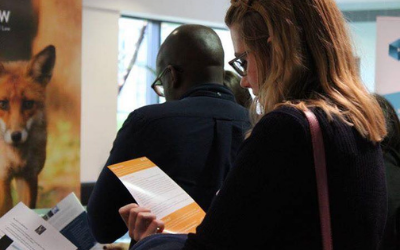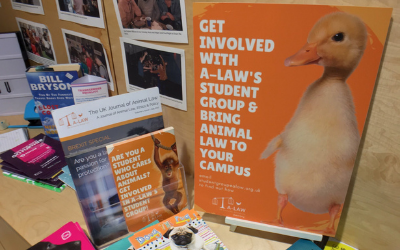by Ankita Shanker LLB (R’dg), BCL (Oxf), BPTC (BPP)
28 March 2024 was a historic day for the Animal Rights movement, as indigenous leaders of various Pacific Islands banded together to ratify the He Whakaputanga Moana (Declaration for the Ocean).
What is significant about this instrument is that is recognises whales as rights-holding persons in law, with their inherent legal rights encompassing, e.g., to a healthy environment, to freedom of movement, and to thrive.
Legal personhood and legal rights have long been seen as the sole entitlement of human beings, based on which humans have exercised largely unrestricted dominion over all other inhabitants of the planet. We have used, exploited, abused, and killed without a second thought. But this groundbreaking treaty challenges that traditional outlook by legally recognising a new class of rights-holding persons: whales.
A rationale of the declaration might be found in the fact that whales are considered sentient beings and ancestoral guides, thus affording them a significant place in Māori culture and tradition. From the surrounding context we can glean that the declaration is about promoting interspecies justice, also as a means to protect the interests of future generations. To do this, it takes a holistic approach for robust understanding and protection of the interests of whales, incorporating indigenous wisdom with modern science. Beyond a series of prescriptions and proscriptions, the declaration also proposes the creation of an ocean protection fund.
It is important to note that the instrument is a declaration, and not a binding treaty, i.e., it does not create legally-enforceable rights. However, it is the first step in opening dialogue between stakeholders to create a legal framework for the protection of whales.
When we consider the alarming statistics related to whaling, and the chilling methods used to slaughter these sentient and highly intelligent beings, the need of this declaration becomes glaringly apparent.
Of course, the list of those humans exploit, abuse, and slaughter does not end at whales. But we need to start somewhere, and attempts to strategicially start with those species that humans are likely to be more open to the idea of recognising as rights-holding persons are consistent with prevailing animal protection ideas, e.g., the Nonhuman Rights Projects’ approach, and facets of Raffael Fasel’s Species Membership Approach (SMA). That is also not to say that these are necessarily the motivations behind the treaty at hand, but that it is a logical first step in extending rights and personhood recognition and protection to non-human animals.
Despite possible allegations that the protection of whales to the exclusion of all other species is wrought with speciesism, this author is of the opinion that the initiative should be welcomed. And that imperfect justice is better than no justice.
After all, changing societal attitudes and legal frameworks is not something that happens overnight. If we succeed in legally acknlowledging the personhood and rights of some non-humans, this opens the door for similar extension to other non-humans. Whales are an excellent starting point for two main reasons:
a) given their ability for higher cognitive processing, humans empathise more with them, and see them as being more similar to humans; and
b) given the fact that mainstream human activities are not contingent upon their exploitation, the majority of humans find their lives will not be significantly disrupted by recognising their personhood and rights (as opposed to, say, those of chickens), and thus have little to no self-interest in withholding protections.
And so, we applaud the commitment to widen the paramaters of those humans consider rights-holding persons, and hope that this move encourages the international community as a whole to make such recognitions, and not only for whales, but for all sentient life with whom we share our beautiful planet.
Resources
- “A unique and vital mission: who we are and what we do” (Nonhuman Rights Project 2024), “Do you care only about those animals?”
- “He Whakaputanga Moana (Declaration for the Ocean) Treaty” (Eco Jurisprudence Monitor)
- Raffael N. Fasel, More Equal Than Others: Humans and the Rights of Other Animals (Oxford University Press 2024)

About the author:
Ankita Shanker LLB (R’dg) BCL (Oxf) BPTC (BPP) is a social entrepreneur and legal researcher specialised in Public International Law, Animal Law, and Legal Philosophy and Theory.
She earned her post-graduate degree in law from Oxford University and qualified as a barrister at the Bar of England and Wales.
After nearly 1.5 years training at international criminal courts/tribunals and 1.5 years running two courses on a Swiss LLM programme, Ankita is now working towards her doctorate in Animal Rights Legal Philosophy and Theory at the Universities of Basel and Helsinki. She holds various scholarships/fellowships, and is thus funded by (the) Swiss, Belgian, and Finnish governments/research institutions.
Ankita has set up and run various moot court competitions. As International Moot Court Training Expert for the International Commission of Jurists, she founded, developed, and ran the first moot on International Human and Animal Rights Law, held at the national level in Myanmar. She is now the Founder and Director of the first world moot on International Law and animal rights, comprising an international mooting competition and mooting/coaching training courses.
Ankita is the Co-Director for Research and Expert on International Criminal Law and Animal Law at World Animal Justice. She is also a Fellow of the Animals & Biodiversity Think Tank of the Global Research Network, and holds various other appointments and memberships, including the title of Expert at the Global Animal Law Association.
In her spare time, Ankita works, pro bono, as a legal correspondent and moot court coordinator at the UK Centre for Animal Law, a consultant composing law and policy recommendations for the European Union on behalf of Dierencoalitie (the Dutch coalition for animal NGOs), and a legal and policy advisor to various animal NGOs across Europe.







